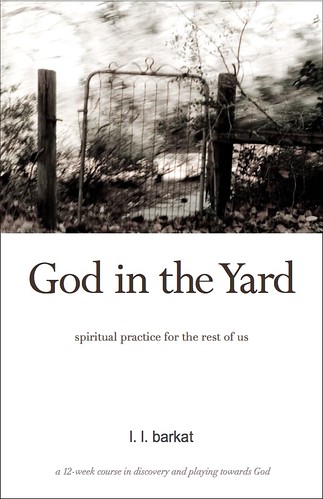5 Ways to Jumpstart Your Writing

I figure if I write a post like this I might inspire myself as much as anyone. So here goes. 5 ways to jumpstart your (and my) writing:
1. Explore new genres and forms. For a while now I've felt a little stunted in my writing. Especially poetry. So I'm trying new forms like sestinas, sonnets and pantoums (to come, I promise).
I also feel like I've reached a plateau in my non-fiction efforts. Currently, I'm revising a larger work, and my first order of business has been to study fiction.
In fact, I just bought James Scott Bell's book Plot & Structure: Techniques And Exercises For Crafting A Plot That Grips Readers From Start To Finish. Happily (or sadly, if you hate deletion), Bell's fiction advice is leading me to restructure my format, drop several thousand words, and think like a novelist.
I'm also looking forward to Jeff Gerke's upcoming book Plot vs Character: A Divided Novelist's Guide to Writing Great Fiction.
2. Meet cool writers. There's nothing like meeting new writing friends to remind me that I'm not alone in feeling the occasional setback and need to grow.
This week I re-met Merrie Destefano, the author of How to Draw Zombies: Discover the secrets to drawing, painting, and illustrating the undead
We had a crazy fun time, along with her friend Rachel Marks. Hearing their stories of pushing-through the hard times, I felt inspired to push through my own down writing moments too.
3. Read a great writing book. I'm WAY excited that the next book club selection at HighCallingBlogs is going to be The Right to Write: An Invitation and Initiation into the Writing Life. Maybe you can join us too (and that will give me more cool writers to get inspired by).
4. Stop reading for a week. I know this is a radical suggestion. But the week I stopped reading I found two fire poems hidden inside me, that I'd been struggling to find for a long time.
5. Get physical. In Brain Rules: 12 Principles for Surviving and Thriving at Work, Home, and School, John Medina notes that physical activity significantly increases cognitive activity.
As far as I know, writing is a cognitive activity. :) On the anecdotal side of things, I can say that when I was running at night (sigh, I haven't done that in a while), I was absolutely bursting with writing ideas.
What are your favorite writing jumpstart techniques? If you want to post them, I'd be happy to link to you. Or we can just go out for a midnight run together.
Pigeon on the Can photo, by L.L. Barkat.
Labels: James Scott Bell, Jeff Gerke, Merrie Destefano, Rachel Marks, writer's block, writing improvement

![Reblog this post [with Zemanta]](http://img.zemanta.com/reblog_e.png?x-id=73aa7c6e-431a-451f-b4be-e718fa58f3c5)














